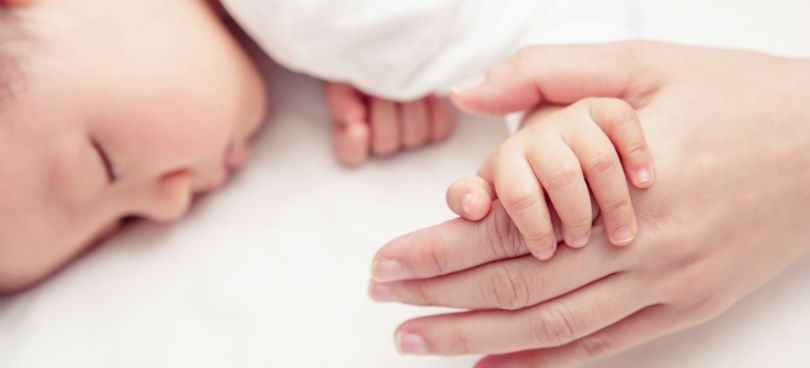What No One Told Me About Adoption
I was exiting the highway when she called back, the hospital within eyesight.
“Stacey, it’s Dawn again. Look, I’m really sorry…”
It was our social worker, but her voice sounded different. She had already called me once that morning to say the court was scheduled for Thursday. We would officially receive custody then.
“I just got off the phone with Julie, and she says Beth* is having second thoughts.”
No. That’s not right. I looked up as the stoplight turned green and I made the left turn, still heading toward the hospital. The hospital where I thought our newborn son was, our son who had been born early the morning before, weighing seven pounds and seven ounces. We had spent most of the previous day in the hospital with Beth and her boyfriend, the baby’s father. Everything was going well. What happened?
What no one told me about adoption was that it should be about finding families for babies. Not babies for families. Adoption was not about me.
I drove home from our social worker’s office that day with an empty infant carrier in my back seat. I was sad and confused.
I had the thought: This could have been Beth instead of me. Driving home from the hospital empty-handed, feeling like she was drowning in the emotion of grief. One of us was going to leave that hospital devastated and empty-handed. I’m aware that the loss I experienced that day greatly pales in comparison to the grief of a mother after laboring and delivering her child and then placing them in the arms of an adoptive family—I do not mean to equate the two.
But at that moment I began to realize something. Adoption was not about me. This was not so much a “failed adoption” (as the adoption industry calls it), but a successful decision to parent on Beth’s part. Family preservation should be the first choice whenever possible.
My husband and I still grieved, but not without having the opportunity to celebrate and support Beth in her decision. Before leaving town for some much-needed room to breathe, we prepared a gift bag with a small handful of baby items from our still empty nursery. Diapers, a blanket, and a gray sleeper with elephants. As we boarded an airplane routed for warmer weather, Beth’s caseworker delivered these to her, still in the hospital with her newborn son.
When we decided to begin the adoption process, I felt prepared.
I had read the blogs, checked off our recommended reading, and talked with other adoptive parents. We were ready to become parents! We selected an agency to complete our home study, and I thought I asked all the right questions when calling around: “What is your average wait time? How many families do you have waiting right now? How many placements have you done this year? Last year? How many failed?”
I should have also been asking questions like, “How do you support mothers who wish to parent? What sort of counseling is provided to women post-placement? What efforts do you make to ensure expectant mothers do not feel pressured to place?”
It took me deeply experiencing the bittersweetness of adoption to realize what no one had told me yet (or if they had, I would not have been ready to listen): that it was not about me.
Hopeful adoptive parents must fight against entitlement, putting the needs of mother and child before their own desires. Adoption is and should always be about finding families for babies and children, and not the other way around.
Years later Beth and I reconnected on social media. She is a strong woman who mothers her children with fierce love. I am forever grateful for the way she began to teach me the bittersweetness of adoption.
*Not her real name.
Are you ready to pursue adoption? Visit Adoption.org or call 1-800-ADOPT-98 to connect with compassionate, nonjudgmental adoption specialists who can help you get started on the journey of a lifetime.







